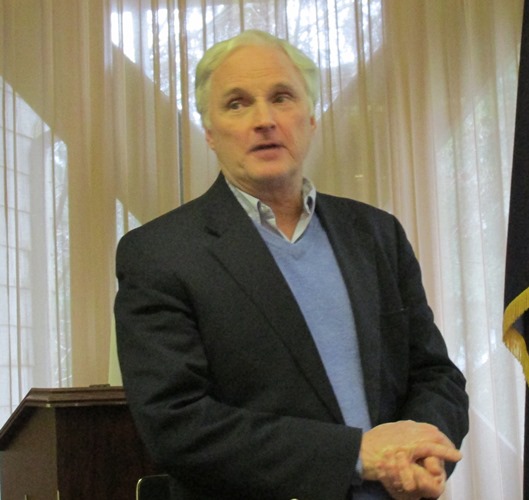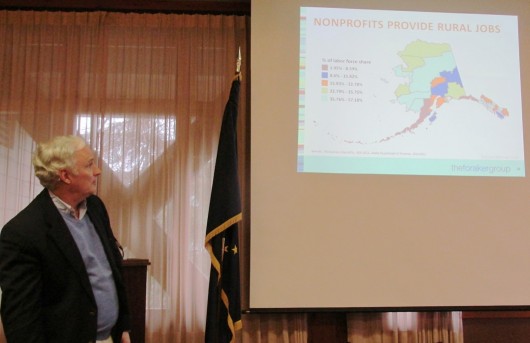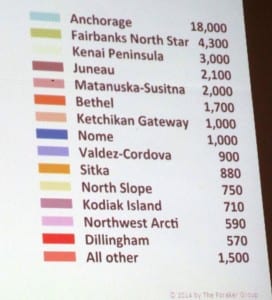The president and CEO of the Foraker Group visited Ketchikan last week, and talked to various groups about his agency, which supports nonprofit groups all over Alaska.
Dennis McMillan also shared the results of a report that Foraker puts together every few years, showing the economic impact of nonprofit agencies throughout the state.
McMillan said nonprofits contribute quite a bit to the state and local economy – especially in rural Alaska. The most recent economic impact report was finished last year, and most of the data used is from 2013. The report shows that Alaska nonprofits employed 39,000 people, and paid those employees about $1.7 billion.
And that’s just a fraction of what nonprofits spend.
“Nonprofits hire attorneys, nonprofits bank, nonprofits buy paper,” he said. “Nonprofits do all sorts of stuff and that creates other jobs.”
McMillan said total expenditures for nonprofits in Alaska was about $6.5 billion in 2013. That includes credit unions, and most of the state’s hospitals and healthcare organizations, which have huge budgets and payrolls.
State budget cuts are a topic of concern throughout Alaska because of a big drop in oil tax revenue. McMillan said Foraker researchers predicted this drop in income several years ago, and sounded the alarm to the nonprofit sector.
“I’ve been going around the state for four years saying, like Chicken Little: The sky is going to fall. Well, it just fell,” he said. “And, remarkably, a lot of nonprofits listened to what we said. And the data is going to show that this sector was more prepared for what’s going on right now than many other sectors.”
Other nonprofits have shut down or merged. Not necessarily due to a drop in federal and state funding, though. Some just couldn’t maintain a board.
“We look around at most of the boards that we work with, and the average age of the board members that we work with is old,” he said.
With Baby Boomers retiring in vast numbers, and a relatively small generation taking their place, he said it’s a growing problem.
“We are positive that we are not going to have enough people to serve on all the boards of all the nonprofits in Alaska. Positive. It’s already happening,” he said. “At Foraker, people want to know how to get more money, more importantly, they want to know how to get and keep a board member.”
That issue also will affect nonprofits’ ability to hire and maintain staff.
McMillan said the traditional models that nonprofits, businesses and government agencies have used for many years aren’t working anymore, and things will change. He said that change will be technology driven, and he’s sure Alaska’s nonprofit agencies will adapt.









